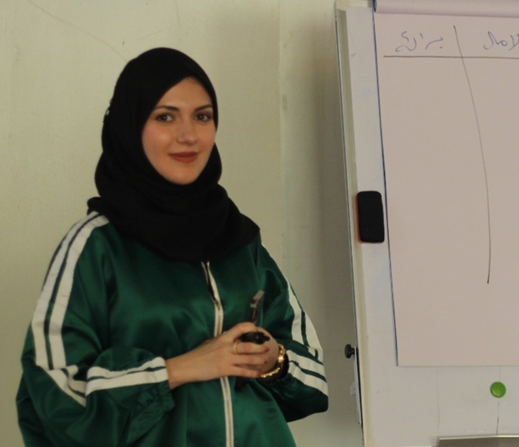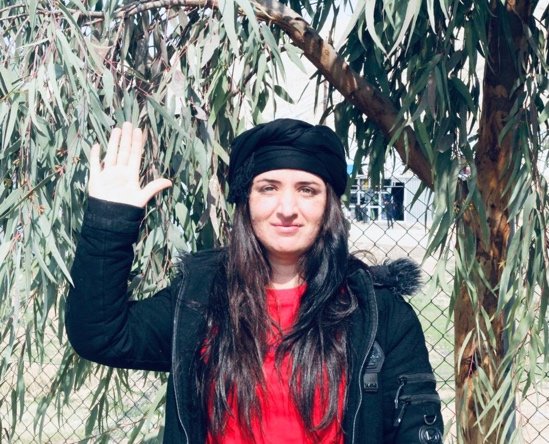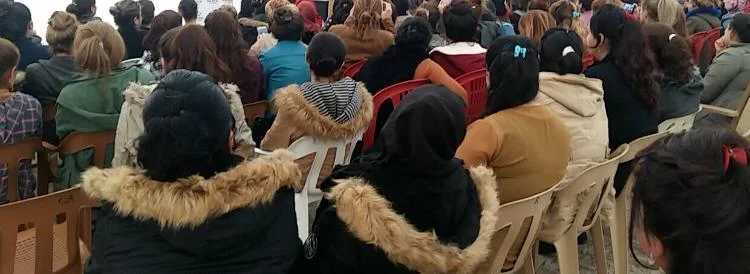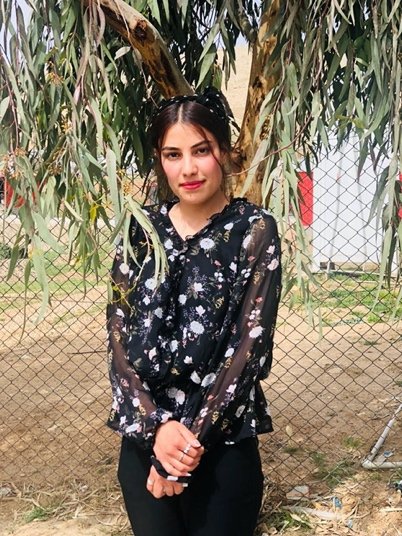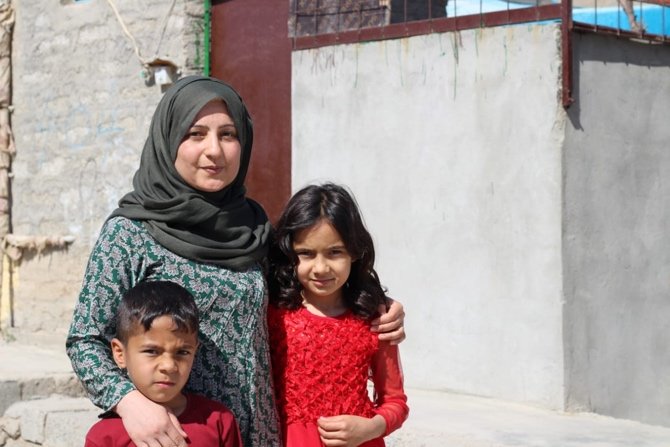Peace Sisters
As one of our newest projects, Peace Sisters provides women and girls with training so that they can lead peace processes and take a more active role in rebuilding their fractured communities. Although there are other projects on the ground that foster peacebuilding and social cohesion, we believe Peace Sisters is one of the first to train women to become mediators, peace defenders and active community leaders.
As one of our newest projects, Peace Sisters provides women and girls with training so that they can lead peace processes and take a more active role in rebuilding their fractured communities. First launched in partnership with the German Consulate, the project sees participants learn new skills in critical thinking, teamwork, communications and public speaking, with the aim of empowering them to recognise their human rights and take on prominent leadership roles.
Although there are other projects on the ground that foster peacebuilding and social cohesion, we believe Peace Sisters is one of the first to train women to become mediators, peace defenders and active community leaders.
Crucially, after the training, the women and girls implement community activities of their own choosing – which involve men and boys and encourage inclusion, collaboration and open dialogue across multiple faiths, cultures and generations. These activities have to date included awareness sessions around Women, Peace and Security, journalism workshops and self-defence classes.
Peace Sisters also falls directly in line with UN Resolution 1325, which calls for “an increase in the participation of women at decision-making levels in conflict resolution and peace processes.”
CASE STUDY
Laylan participated in Peace Sisters because she wanted to know more about mediation in conflict resolution. She says: “I enjoyed this experience, especially meeting new girls and learning about their experiences and opinions. My favourite thing about the training was that the mediation was taught by women and girls.”
She adds: “The training taught me to be in control of my feelings, be more confident, and be more goal-oriented in life. I hope this project grows and reaches more women and girls in the community as it is highly useful in different aspects of life.”
Human Rights
In any conflict, women and girls are known to suffer most, and displacement worsens pre-existing patterns of discrimination. This exposes them to heightened risks of human rights violations, including rape, slavery, trafficking, forced marriage and sexual violence, which all increase as a result of conflict, as well as torture and even murder. In addition, girls living in conflict-afflicted countries have less opportunity to go to school or seek employment.
In any conflict, women and girls are known to suffer most, and displacement worsens pre-existing patterns of discrimination. This exposes them to heightened risks of human rights violations, including rape, slavery, trafficking, forced marriage and sexual violence, which all increase as a result of conflict, as well as torture and even murder. In addition, girls living in conflict-afflicted countries have less opportunity to go to school or seek employment.
We run regular awareness sessions on topics focused around human, legal and women’s rights, as well as those related to employment and educational opportunities. These sessions are very popular and women and girls feel safe to engage in settings where conversation and dialogue across divides is encouraged. We have also launched programming to mitigate early childhood marriage, sexual and gender-based violence, and domestic violence. Additionally, all of our projects are underpinned by the principles of gender equality.
While we fundamentally believe in empowering women and girls so that they understand and demand their right, we also involve men and boys in our awareness sessions, as we believe they must play a part in achieving a fairer, more just society.
CASE STUDY
Haifa came to live in Essyan camp after the ISIS attacks, which left her homeless and facing a life of poverty. But with the support of our team, Haifa has been able to learn English and participate in awareness sessions on human and women’s rights. She says: “I choose to challenge injustice through learning and improving myself. Thanks to the Lotus Flower I can continue to learn these new skills so that I will be able to create a better future for myself.”
Supporting Survivors
Since 2016 we have been working with a team of pro-bono international lawyers at Hogan Lovells to pursue civil litigation cases for women ISIS survivors. The move is aimed at finally bringing Islamic State fighters to justice, while delivering compensation to female Yazidi survivors in northern Iraq.
Since 2016 we have been working with a team of pro-bono international lawyers at Hogan Lovells to pursue civil litigation cases for women ISIS survivors. The move is aimed at finally bringing Islamic State fighters to justice, while delivering compensation to female Yazidi survivors in northern Iraq. Rather than the duty falling on the tax-payer, we believe one solution is for states and governments to confiscate seized or sanctioned assets from foreign ISIS fighters, and redistribute these among the victims. The action is focusing on ‘homegrown’ ISIS fighters – identified by the women victims – from western countries including Australia.
Not only is reparation and redress the most appropriate outcome for identified foreign ISIS fighters, but we believe it will open new doors for the survivors – many of whom feel they have been abandoned by the western world. Holding their aggressors to account in this way will bring them a vital sense of closure at long last.
The civil action is to focus on ‘home-grown’ ISIS perpetrators from western countries who have committed atrocities such as rape, enslavement, torture and human trafficking. We are hoping this will pave way for new policy and legislation for all victims of sexual abuse in conflict.
Positive Masculinity
Although we primarily support women and girls, we fundamentally believe that men and boys must be involved in advancing gender equality and bringing change for everyone. In recent months, we have been running positive masculinity workshops for men and boys, which are aimed at raising awareness and shifting traditional perceptions around women’s roles in society, and helping end harmful behaviours against them.
Although we primarily support women and girls, we fundamentally believe that men and boys must be involved in advancing gender equality and bringing change for everyone. In recent months, we have been running positive masculinity workshops for men and boys, which are aimed at raising awareness and shifting traditional perceptions around women’s roles in society, and helping end harmful behaviours against them.
The sessions are designed to celebrate the positive aspects of being male, and show that masculinity can be empowering rather than restrictive or abusive. The participants work together to learn how they can support women and girls, and cooperate much more fully to improve their lives and those of their families.
Workshops are especially focused on eliminating gender-based violence, while other topics explored include ideas around ‘masculinity’ and what it means to be a modern-day man. The sessions have received a hugely positive response from the men and boys taking part so far, with many productive discussions.
CASE STUDY
Fuad is a 24-year-old Yazidi IDP, who found he was able to re-evaluate and further his own domestic responsibilities after our Positive Masculinity workshops. “Now I help my family with things like cooking and cleaning,” he says. “And I feel better when I talk to them about problems.”
Gender-based Violence Awareness
We run regular awareness sessions to help combat gender-based violence, as well as sexual and domestic violence. This is carried out in group settings as well as through door-to-door community visits.
We run regular awareness sessions to help combat gender-based violence, as well as sexual and domestic violence. This is carried out in group settings as well as through door-to-door community visits.
In collaboration with our trusted partners, SEZ and the Federal State of Baden-Württemberg in southwest Germany, we also ran a four-month PSEA (Prevention of Sexual Exploitation and Abuse) project at our three centres at Domiz 2, Essyan and Rwanga camps, which aimed to raise awareness of abuse and improve reporting mechanisms for victims. As part of the initiative, we also conducted PSEA workshops for government institution employees in Duhok.
These kinds of interventions are badly needed, as shown in an assessment of awareness we conducted, which found that 76% of respondents had no idea what Sexual Exploitation and Abuse (SEA) was. In addition, 63% said they believed cases had increased during the pandemic, largely due to isolation, job losses and a critical shortage of resources. But in spite of rising cases, SEA remains desperately under-reported due to fear of stigmatisation and rejection by family and the wider community. There is also a lack of legal support to enable recriminations.
Our vital awareness work also engages men and boys, in order to help change traditional social norms that contribute to SEA.
CASE STUDY
Surian has been living at Essyan camp since 2014, and was badly affected by the ISIS conflict. She has been attending our awareness sessions on gender-based violence and says: “I now know more about my rights, and my obligations as a female to reduce gender-based violence against other women within my community.”
Holiday and Community Events
The women and girls we support come from diverse sectors, ethnic groups and backgrounds, and we strive to recognise key cultural events and holidays. We believe it is vital to respect family traditions, friendship, hospitality and community events – such as Ramadan.
The women and girls we support come from diverse sectors, ethnic groups and backgrounds, and we strive to recognise key cultural events and holidays. We believe it is vital to respect family traditions, friendship, hospitality and community events – such as Ramadan.
Occurring once a year and as prescribed by Islam, adult Muslims fast from dawn to dusk, if their health permits. After the sun sets, the day-long fast is broken by Iftar, the evening meal usually shared with family or other community members. With many displaced people residing in camps, it can be a hard time of year for those who celebrate Ramadan as they are away from their home and family members. In collaboration with our partners, we have previously hosted an Iftar meal for Muslim and Yezidi women, serving as an integration platform between the two communities. Regardless of background, sharing holiday meals and the traditions surrounding them builds friendship, community and a sisterhood. It is also a peacebuilding process, which fosters religious and cultural understanding.
Additionally, in recent years we have raised funds around Ramadan so that mothers can buy their children celebratory outfits for Eid – which marks the end of the holy period. Over the past two years we have been able to take hundreds of children from three camps on shopping trips to choose their own special clothing, footwear and accessories.
CASE STUDY
Nareeman, pictured with her three children, was one of the women we reached through one of our successful Ramadan campaigns. A Syrian refugee and single mother, she heartbreakingly lost her husband to a heart attack many years ago, and has since been trying to raise her children in the best way she can. Our appeal enabled Nareeman to buy her children Eid outfits to celebrate the end of Ramadan, putting a big smile on their faces.


